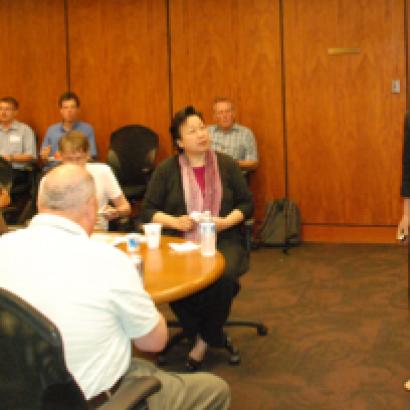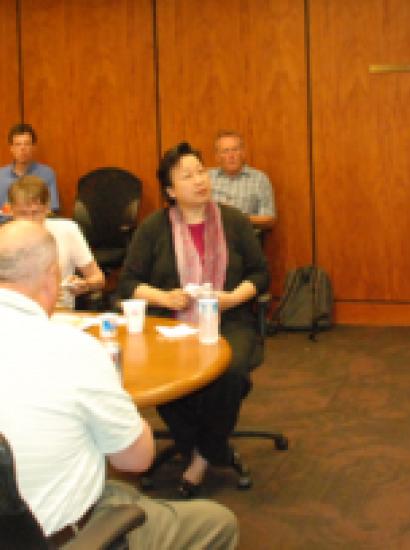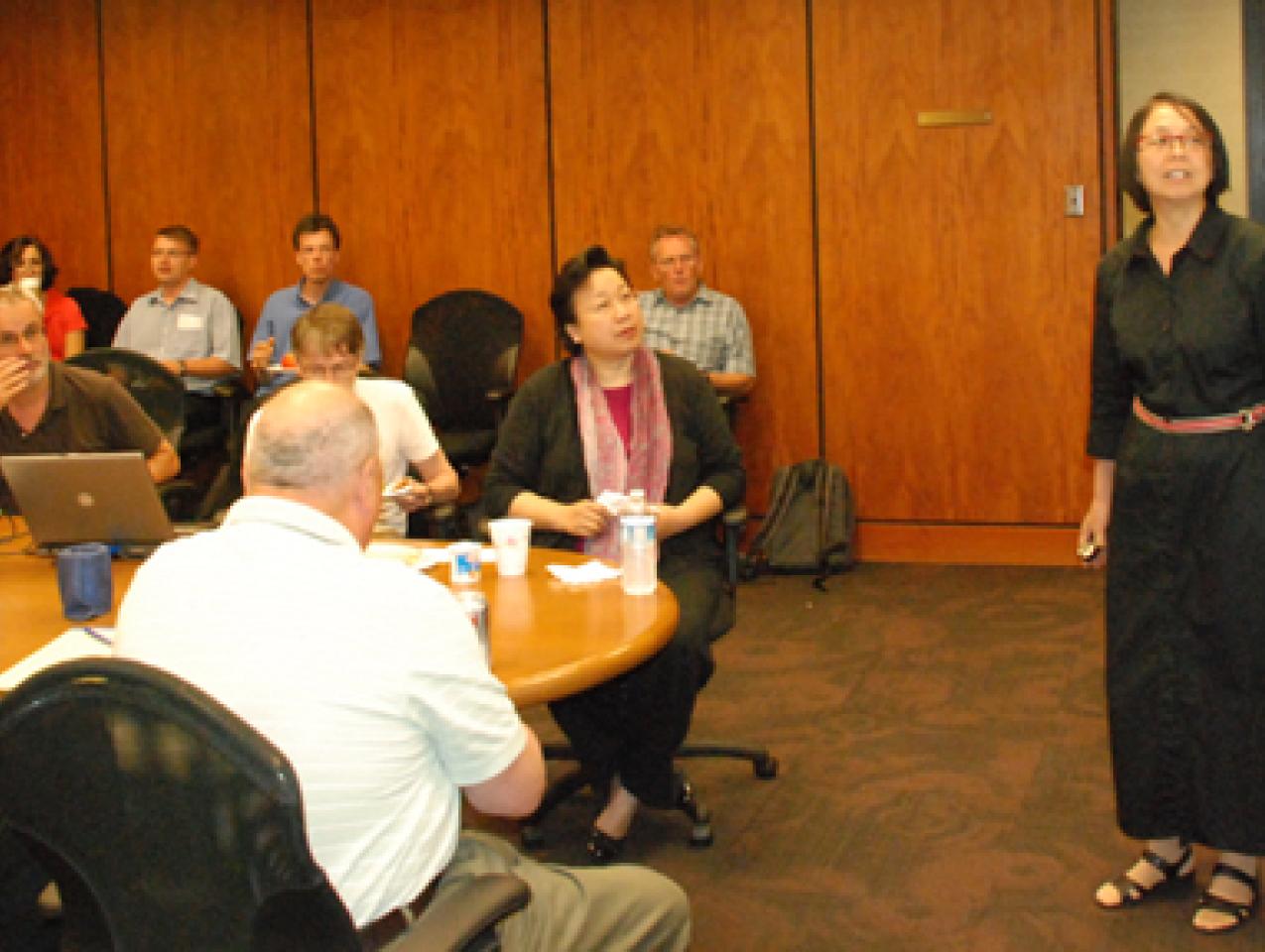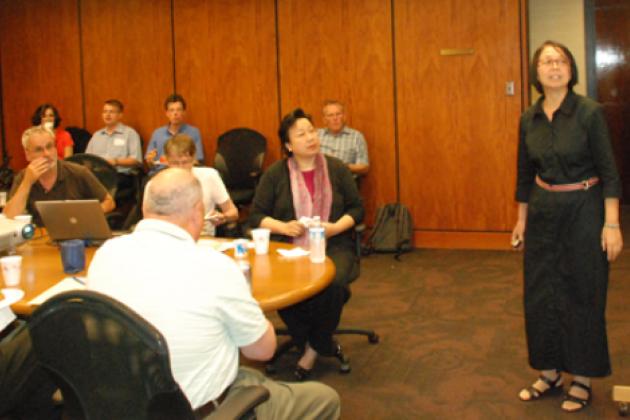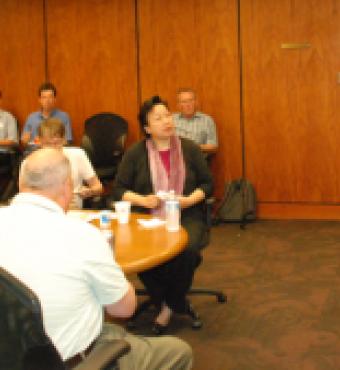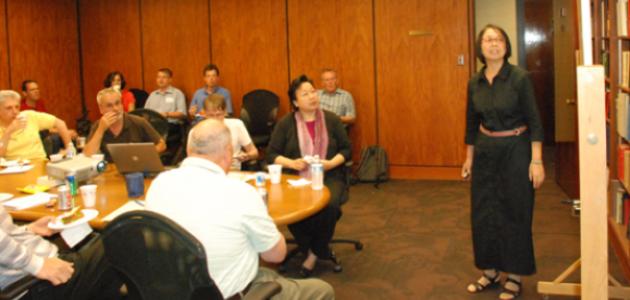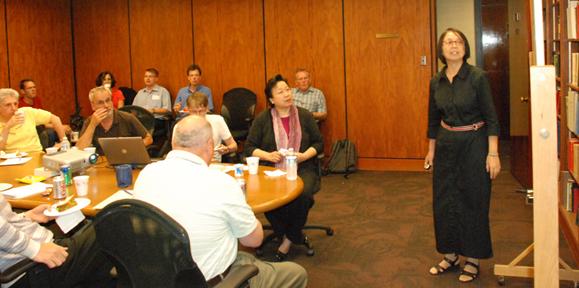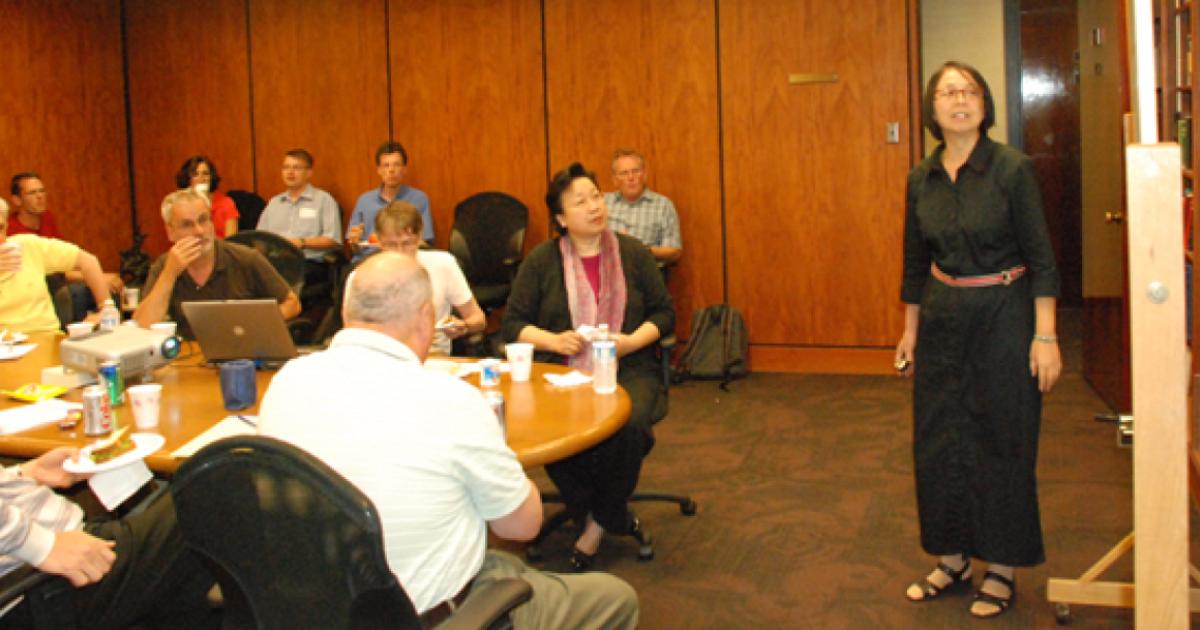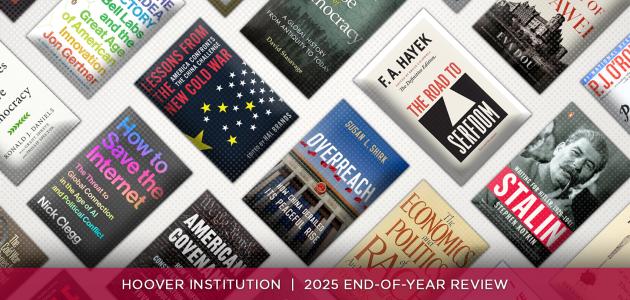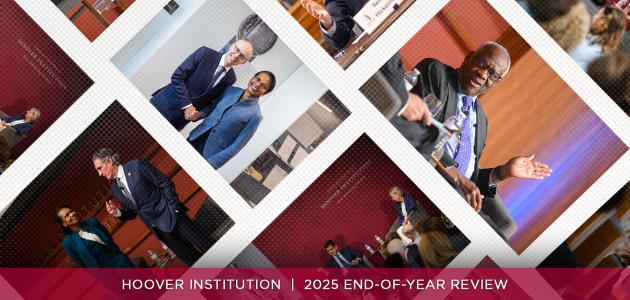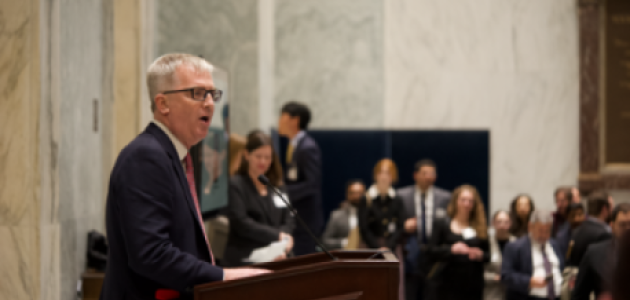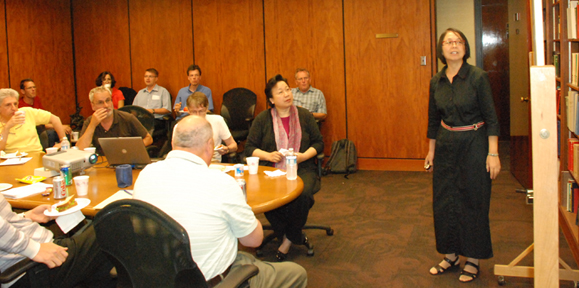
The vast array of collections concerning communism found in the archives of the Hoover Institution was the subject of study at the recently concluded Sino-Soviet Workshop at the Institution. According to Hoover research fellow and workshop organizer Paul Gregory, “This year’s workshop was the most successful in its history. For the first time, we were able to bring together researchers working on Hoover’s two major collections–Russia and China–and to explore research synergies between these two areas of study. We are also pleased that the invited researchers, working with a broad array of collections, were able to bring to our attention significant new findings. As always, the outside researchers left with an appreciation for the dedication and professionalism of the Hoover Archives’ staff.”
The workshop, held July 19–30, began modestly in 2002 with six participants at then-named Hoover Archives Summer Workshop. Initially conceived to study Hoover’s Soviet State and Party Archives, the workshop’s scope has expanded to the study of communism in general. Twelve outside scholars from the United States, Canada, the United Kingdom, France, and Italy were invited to this year’s two-week session, which covered such diverse topics as civil society in contemporary China, the American Communist Party, the Georgian diaspora, Gulag culture, Soviet influence on Chiang Kai-shek, the Polish population movement during and after World War II, secrecy and planning in the Soviet economy, and the Soviet war experience in Afghanistan. Collections studied included the Nestor Apollonovich Lakoba collection; Lin Zhao’s diary from the Lin Zhao papers; Chiang Kai-shek’s diary from the Modern China Archives Project; the Pasternak family papers; the Vitalii Kataev papers; Fond 89, records of Communist Party of the Soviet Union on trial, 1918–92; Fond 17, records of the Central Committee of the Communist Party of the Soviet Union, 1903–65, 1971; and Fond R-9414, records of the Main Administration of the Places of Confinement of the USSR Ministry of Internal Affairs, 1930–60.
As in previous years, Stanford faculty from the history and political science departments joined invited scholars and Hoover research fellows to participate in the workshop, along with Stanford PhD candidates.
For a description of this year’s workshop, go to www.hoover.org/research/projects-and-programs/soviet-archives/workshop/2010.







